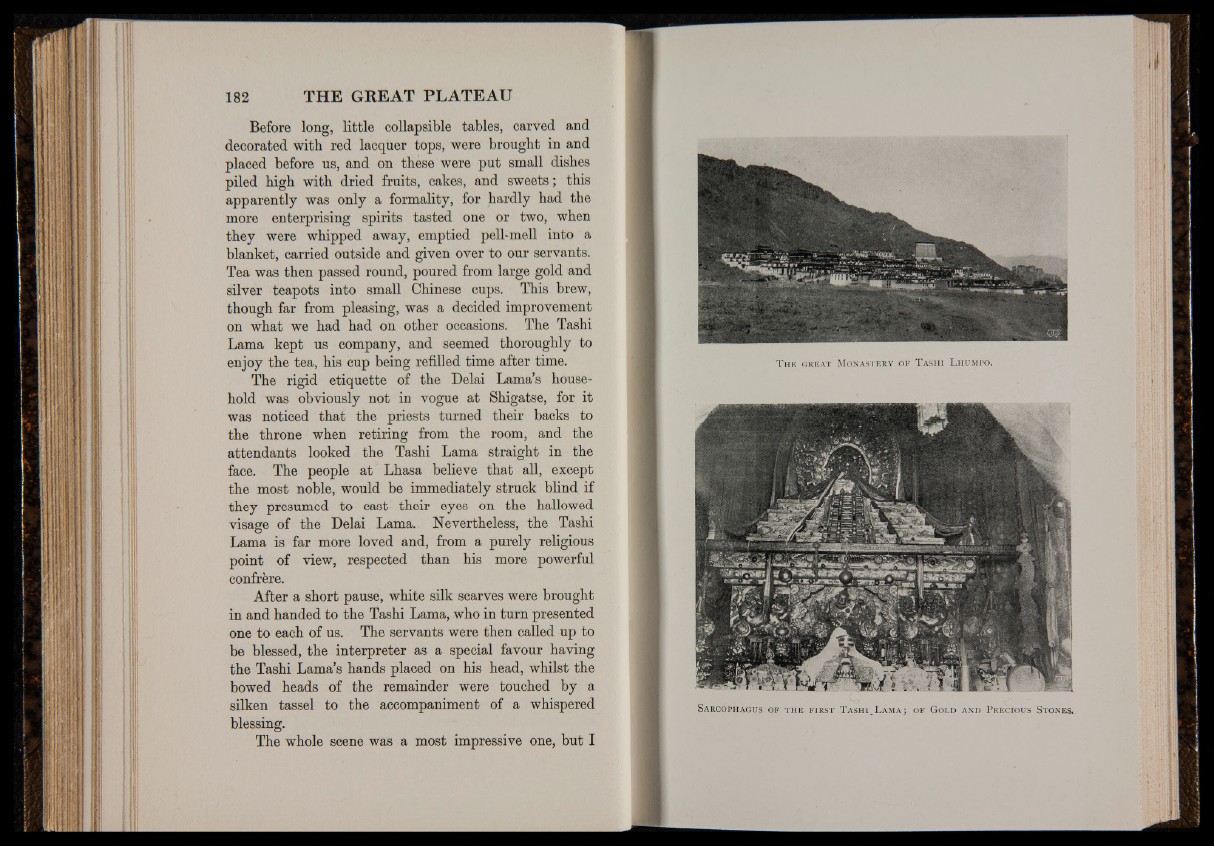
Before long, little collapsible tables, carved and
decorated with red lacquer tops, were brought in and
placed before us, and on thèse were put small dishes
piled high with dried fruits, cakes, and sweets ; this
apparently was only a formality, for hardly had the
more enterprising spirits tasted one or two, when
they were whipped away, emptied pell-mell into a
blanket, carried outside and given over to our servants.
Tea was then passed round, poured from large gold and
silver teapots into small Chinese cups. This brew,
though far from pleasing, was a decided improvement
on what we had had on other occasions. The Tashi
Lama kept us company, and seemed thoroughly to
enjoy the tea, his cup being refilled time after time.
The rigid etiquette of the Délai Lama’s household
was obviously not in vogue at Shigatse, for it
was noticed that the priests turned their backs to
the throne when retiring from the room, and the
attendants looked the Tashi Lama straight in the
face. The people at Lhasa believe that all, except
the most noble, would be immediately struck blind if
they presumed to cast their eyes on the hallowed
visage of the Délai Lama. Nevertheless, the Tashi
Lama is far more loved and, from a purely religious
point of view, respected than his more powerful
confrère.
After a short pause, white silk scarves were brought
in and handed to the Tashi Lama, who in turn presented
one to each of us. The servants were then called up to
be blessed, the interpreter as a special favour having
the Tashi Lama’s hands placed on his head, whilst the
bowed heads of the remainder were touched by a
silken tassel to the accompaniment of a whispered
blessing.
The whole scene was a most impressive one, but I
Sa r c o p h a g u s o f t h e f ir s t T a s h i . L a m a ; o f G o l d a n d P r e c îo u s S t o n e s .